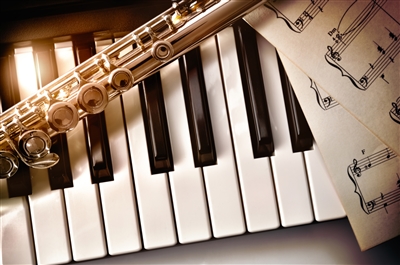Benefits of learning a musical instrument

According to the Chinese philosopher Confucius `music produces a kind of pleasure which human nature cannot do without.` To be able to play a musical instrument is to have a gift for life. You don`t need to be Vladimir Horowitz on the piano, or Yehudi Menuhin on the violin to reap the rewards of playing an instrument. Whatever degree of proficiency you attain will be an achievement, and will confer benefits throughout your life.
Unfortunately music is currently woefully underrepresented in most British schools. There is no requirement for children to learn an instrument, but in march 2021 the government published a music model curriculum for years one to nine, saying it would provide `rich and varied musical framework that nurtures fundamental musical techniques alongside building musical knowledge.`
A year later the government published its national plan for music pedagogy, which stated it would `ensure all pupils receive a high-quality music education, strengthen the creative pipeline and help create the musicians and audiences of the future.`
For most people learning a musical instrument is a challenge they must take upon themselves. Here at Tutor Hunt we have thousands of Music tutors. A full lest can be seen here, where you will find, along with the more popular instruments like the guitar and piano, a number of more esoteric offerings, such as the tin whistle, sitar, and the cor anglais - a woodwind instrument of the oboe family. Certainly learning an instrument is a challenge, but the following list detail just a few of the benefits that you will gain for your endeavours.
1. Cognitive benefits
Playing a musical is known to have a number of highly beneficial effects on the brain. Albert Einstein said `Life without playing music is inconceivable to me. I live my daydreams in music. I see my life in terms of music... I get most joy in life out of music`. There is no doubt playing a musical instrument stimulates the brain. Simply from a point of dexterity, you will be engaging in an a highly complex and coordinated task. The learning of each new piece of music is an intellectual task, one where you will become a sound architect, assembling a complex structure according to the blueprint of the score.
2. Expands your social circle
Learning a musical instrument will open up an number of social opportunities. Local orchestras or bands are always looking for members to join them. You certainly don`t need to be a virtuoso to join one of these groups, and working with others on the same piece of music will be a great learning opportunity. Instrumentalists shouldn`t just consider the isolated experience of a solo artist. Most music is actually written for ensemble performance, and you will soon find yourself becoming friends with those you are making music with. There are many venues that encourage amateur performers, and offer open mic sessions.
3. Increases concentration
We live in a world of distractions. Computers, mobile phones, endless television channels. To learn to focus the mind on a single factor, to be able to work uninterrupted for a great length of time, are skills that will help you stand out from your peers. Learning an instrument will help you progress towards this goal. By putting in the requisite hours to master your instrument, you will be learning a set of skills that will find application in many other areas of your life. It is not unusual for musicians to be working on individual pieces of music throughout their lifetimes, and to never consider the job to be complete. In what other field of study does such dedication exist? It seems to draw comparison with a zen like way of being, a relationship with art and life that is almost alien to the modern, fast paced mode of life.
4. May help improve mental health
After a stressful day most people may come home to sit in front of the television, or spend time on the internet - pursuits that surely do little to alleviate bad feelings. A far better way to rid oneself of the lingering demands of the day would be to make some music! What an outlet it would be, to pick up a guitar, or sit in front of a piano, and let a musical performance wash away the day`s worries. Again you needn`t be a virtuoso to reap the benefits, you just need to focus on what you are doing, and enjoy the music. Adults rarely get the opportunity to be creative, and playing an instrument is a great way of tapping into your artistic side.
5. Can improve mathematical proficiency
The relationship between music and mathematics has long been appreciated. The greek philosopher Pythagorus is known for discovering certain relationships between the numerical length of strings and their pitch. He invented the Pythagorean scale, which is constructed from perfect fifths and octaves (intervals where the length of the strings are in a 3:2 relationship, and a 2:1 relationship.) Along with the mathematical content of pitch relationships, the rhythmic elements of music are also underpinned by numbers, with note lengths being defined in relation to each other. A semibreve is a whole note, while a minim is a half note, crotchet a quarter note, and quaver an eighth note.

 Add a Comment
Add a Comment